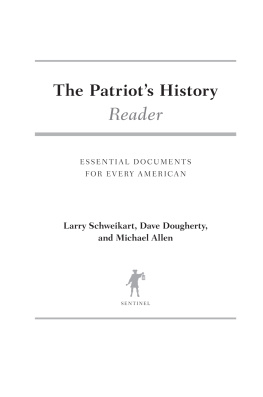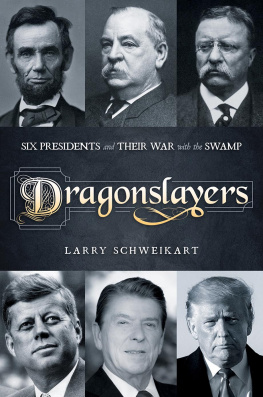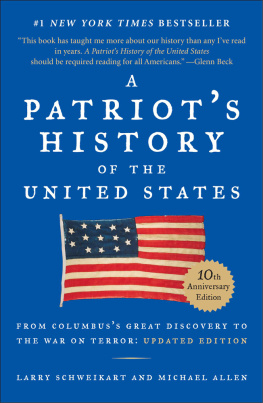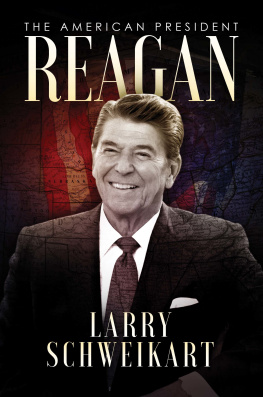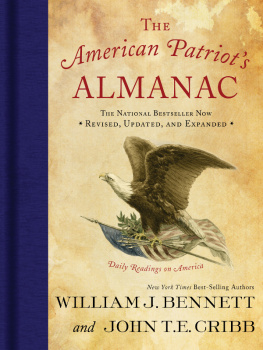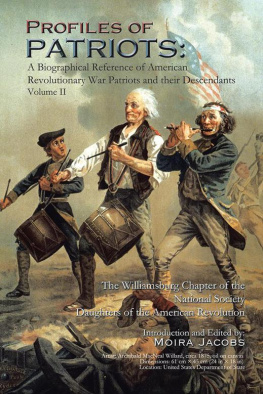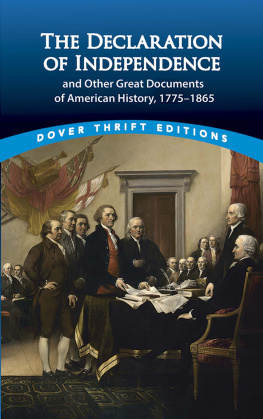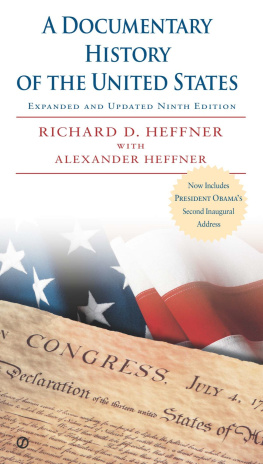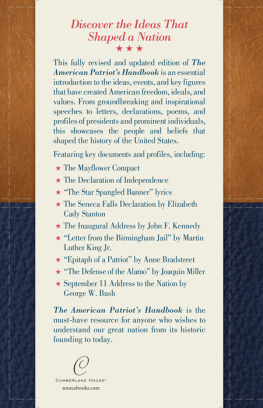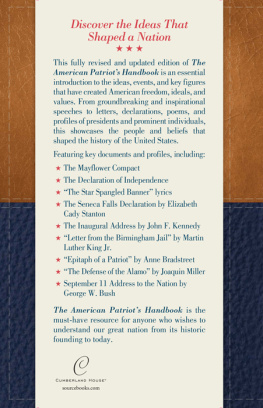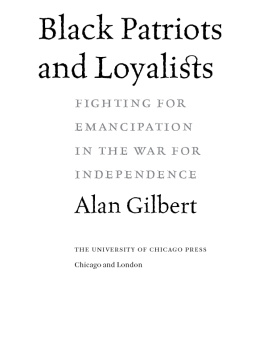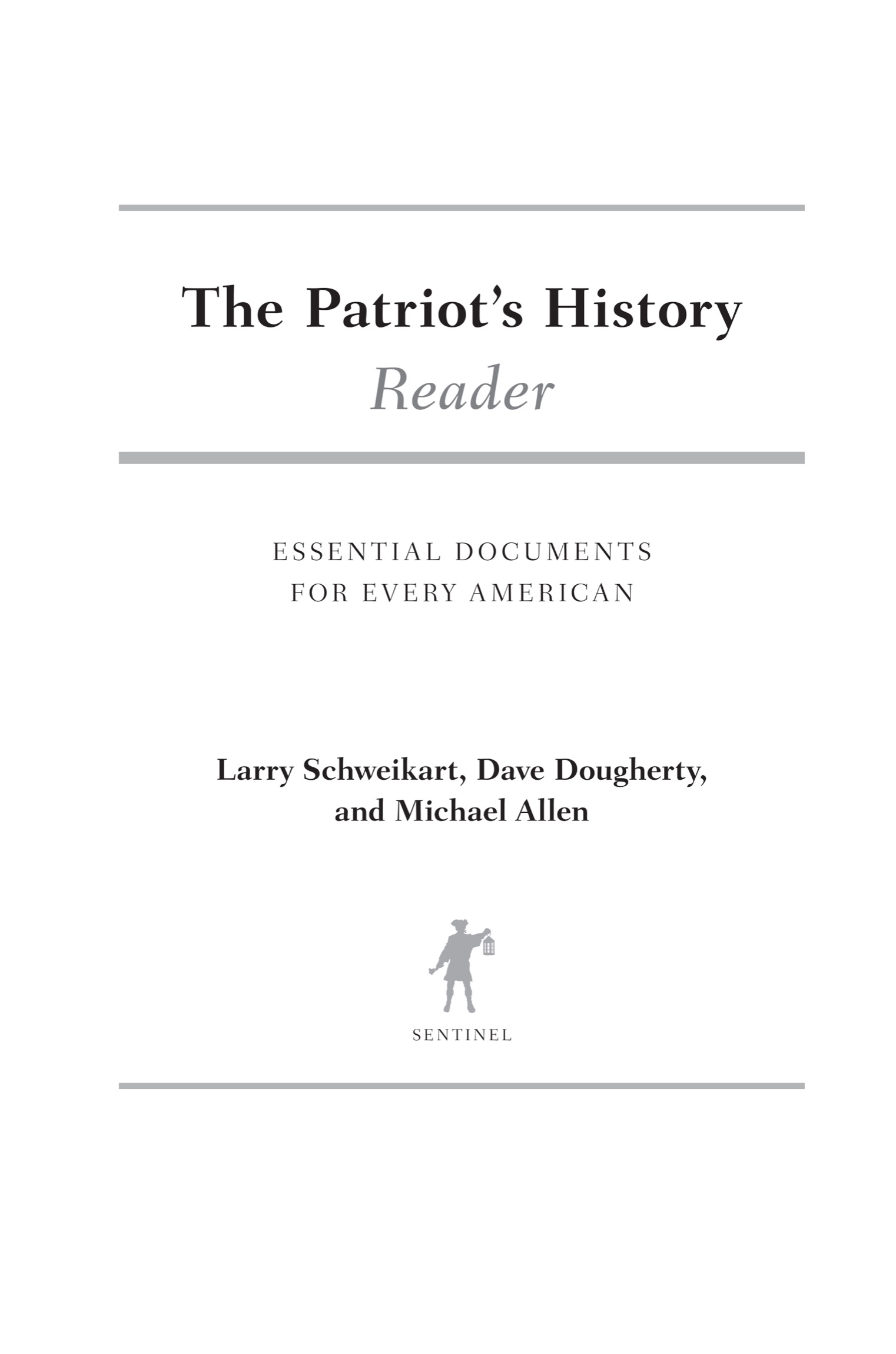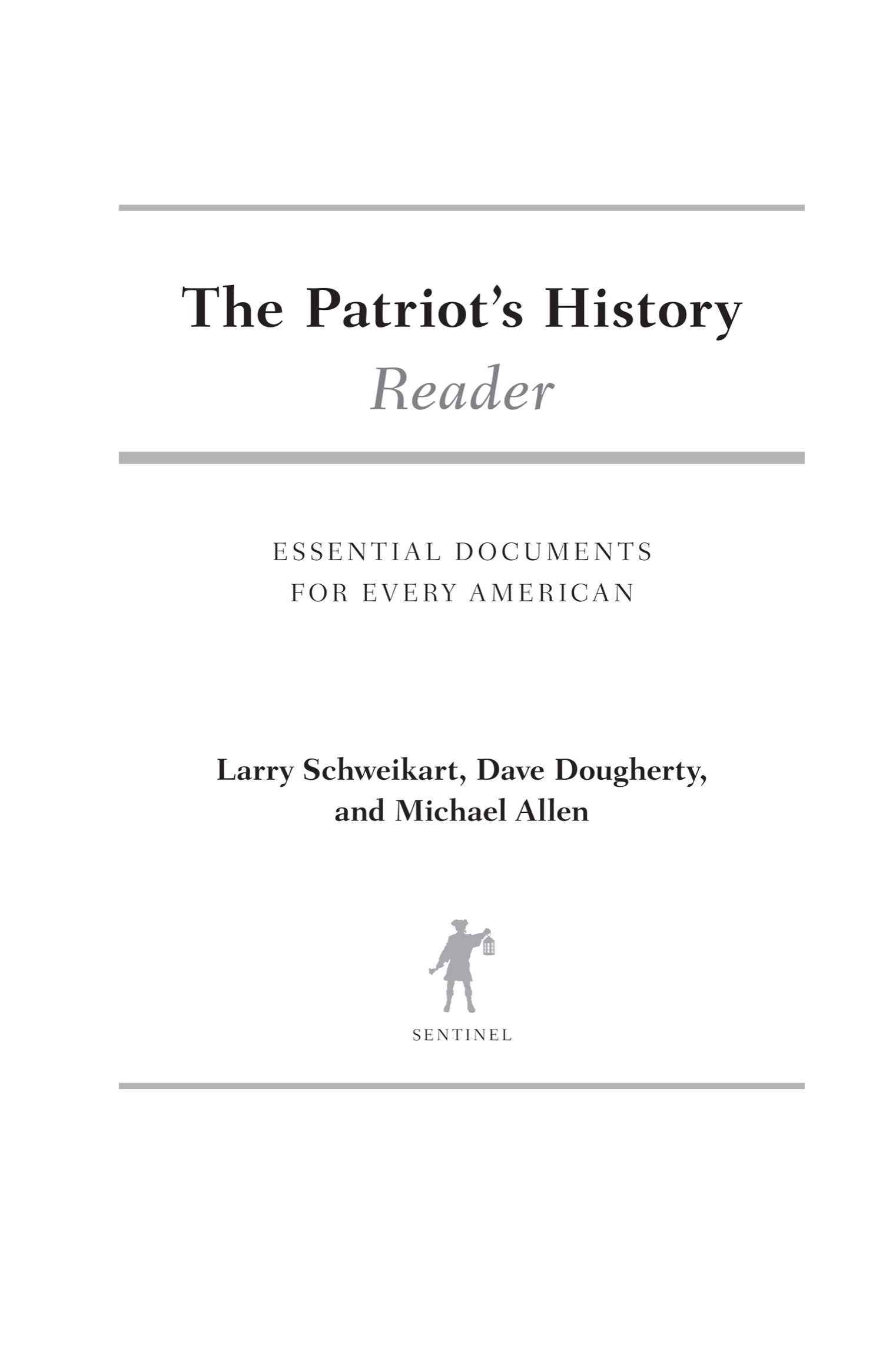Table of Contents
Larry Schweikart and Michael Allen are the coauthors of A Patriots History of the United States and have each written several books on American history and politics. Dave Dougherty is a self-employed businessman and has collaborated with prominent historians on their books, most recently on Schweikarts What Would the Founders Say?
Also by Larry Schweikart
Seven Events That Made America America
48 Liberal Lies About American History
Also by Larry Schweikart and Michael Allen
A Patriots History of the United States
ACKNOWLEDGMENTS
Ever since A Patriots History of the United States first appeared in 2004, educators, professors, and homeschoolers have asked about supplemental materials, which we attempted to provide with our www.patriotshistoryusa.com Web site. This book arises from the requests for documents to accompany A Patriots History in an educational sense, and therefore the inspiration is truly from our readers.
We would like to thank the staffs of the history departments at the University of Dayton and University of Washington for support; and for our agents, Ed Knappman and Roger Williams, for as always making this exercise a reality. Thanks also to Adrian Zackheim, Brooke Carey, and Amanda Pritzker at Sentinel.
Larry Schweikart
Dave Dougherty
Michael Allen
INTRODUCTION
Since A Patriots History of the United States was published in 2004, it has become the foremost book on modern American history that defends the United States as a predominantly liberating country, grounded in law, and founded on Judeo-Christian principles. By empowering the so-called common man throughout its period of territorial expansion, and by continuously extending voting and civil rights to previously ineligible groups, the nation not only became the freest in human history but arguably the most equal. The unique political philosophy implicit in these actionsgiving rise to what is often referred to as American exceptionalismconstituted an experiment in democracy that was never attempted before the rise of the United States.
Yet this exceptionalism did not come without struggles, sometimes against foreign oppressors and tyrannies, and sometimes against domestic foes. In its formation the United States carried a potential seed of its own destructionthe institution of slavery. And after multiple compromises papered over this growing abscess, the Civil War forced a denouement. Over time Americas population became increasingly diverse, bringing about racial, religious, ethnic, and political tensions, which have at times threatened the very fabric of American society, particularly when resources were scarce. Remarkably, America has survived to the present day under a continuous government, and the inherent flexibility of the Constitution and other founding documents has allowed the American government to preserve the republic while adapting to challenges unknown and unimaginable to its founders.
Our goal in this book is to provide teachers, parents, students, and lay readers with primary source documents that will enhance and illustrate the ideas and principles elaborated in A Patriots History of the United States. It is designed to give the freedom and choices, and while we have debated and discussed our decisionstaking many texts out, putting others inultimately it is the individual who must decide which documents bear the most intense analysis. At the same time, we hope this book provides anyone interested in our history a collection of some of the central documents, placed within a context that will aid them in understanding the time, place, and, above all, the philosophical setting of these primary sources.
Perhaps one of the most positive recent trends, brought on partly in response to recent government expansion and the overall liberalization of America, has been a renewed interest among average Americans in the Constitution. That is, for the first time in many cases, ordinary people are acquiring copies of the Constitution and other founding documents to determine what the founders of this nation intended when they established it. That interest has spread to a revival in reading all the colonial- and revolutionary-era documents. This is laudable and much needed, but it should not stop there. Just as government in America has continued to change (and grow), the documents by which presidents, Congress, judges, and bureaucrats have enabled and accelerated that growth demand attention. By examining these documents in their original form, we can understand the founders vision for our country and at the same time try to figure out how and when our leaders have departed from this vision.
The documents presented here are organized chronologically and highlight the key events and ideas that have shaped the course of American history. Certainly many worthy writings, speeches, laws, or court decisions have been omitted, and some might quibble with a few that we have decided to include. Overall, however, we think the collection of documents presented here not only achieves a certain chronological balance but also reflects the historical changes the nation has undergone. Therefore, while it might have been useful to include the speech in which John F. Kennedy put the United States on a course to reach the moon within a decade, the reality of Kennedys goal was not seen for many years, and the practical effect of reaching the moon is still widely debated. Similarly, while any number of court cases could have been offered, we have tried to select those that not only changed society at the time but also had lasting implications.
In founding a Protestant Christian nation based on English common law, the American colonists repudiated absolutism and an autocratic form of government. In adopting common law, America asserted the idea that laws are handed from God to the people, and that in making laws elected representatives should look to the customs and traditions of the people, fine-tuning and administering those laws with respect both to tradition and to legal precedent. By itself this concept of law that ultimately resides in the people rather than some supreme lawgiver, whether secular or clerical, was unique. The United States, by adopting this view, stood nearly alone in the world. To function, a system of common law administered by elected officials required a generally virtuous citizenry, and virtue required a moral compass. Morality, in turn, required religious beliefs that recognize a power higher than oneself. In many respects this concept of power residing in the people, and tempered by virtue, is the foundation of American exceptionalism.
From the Mayflower Compact to the Declaration of Independence, Americans dealt with the issue of loyalty to a king and an empire that scarcely acknowledged their existence, much less their equal rightsa much later development. From the Northwest Ordinance to Brown v. Board of Education, Americans struggled with the practical application of equality when it came to the rights of citizens. And from George Washingtons comments on the military to Barack Obamas speech at Cairo University, the subject of the nations security in a hostile world has produced importantand often vastly differentviews on how the United States should behave. Writers such as Mercy Otis Warren warned that even with the restrictions provided in the Constitution itself, threats to individual liberty would arise from government, whose natural tendency is to grow, and from the public, whose natural tendency is toward apathy.

